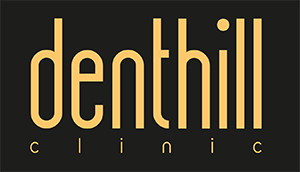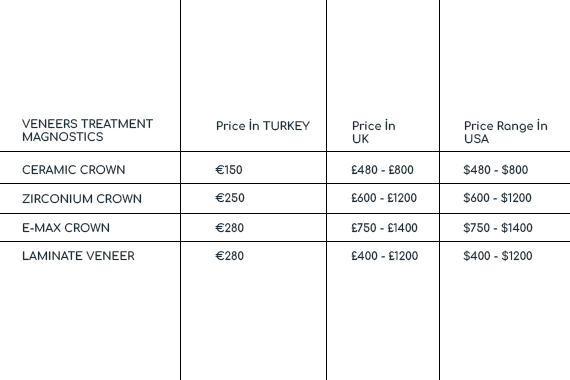It is a branch of dentistry that focuses on the surgical treatment of soft tissues within the oral cavity (such as the cheeks, palate, tongue, and lips) as well as the hard tissues (including teeth and alveolar bones) in a surgical setting.
Surgical procedures are performed on the soft tissues (such as the cheeks, tongue, palate, or lips) as well as the hard tissues (including teeth and bones) within the oral cavity.
Wisdom teeth, also known as third molars located at the back of the dental arch, typically emerge in a person’s twenties. However, they frequently only partially erupt or become impacted within the jawbone due to issues like dental crowding, displacement of their eruption position, or variations in bone density in the specific area of the oral cavity.
What Type of Operations are Performed in Dental Surgery?
Dental surgery encompasses a range of surgical procedures performed in the oral and maxillofacial region. Some common types of operations in dental surgery include:
- The removal of a tooth, often due to severe decay, infection, crowding, or impacted wisdom teeth.
- Surgical extraction of impacted or problematic wisdom teeth that may cause pain, infection, or damage to adjacent teeth.
- The surgical placement of dental implants into the jawbone to replace missing teeth.
- Adding bone material to the jaw to enhance its strength and density, often necessary for dental implant procedures.
- Procedures to treat gum disease, reshape the gumline, or address cosmetic concerns, such as gum recession.
- Removal of the tip (apex) of a tooth’s root and surrounding infected tissue to treat persistent dental infections.
- Corrective jaw surgery to address issues with the alignment of the jaw, bite, or facial aesthetics.
- The removal of abnormal growths, cysts, or tumors within the oral cavity.
- Repairing facial and jaw injuries, including fractures and soft tissue injuries.
- Corrective surgery for congenital conditions involving the lip and/or palate.
- Preparing the mouth for the placement of dentures or other dental prosthetics.
- Increasing the bone volume in the upper jaw to accommodate dental implants, often necessary when the sinus cavity encroaches on the jawbone.
Why Choose Maxillofacial Surgery in Turkey?
Turkey has a well-established healthcare system with modern hospitals and clinics equipped with state-of-the-art medical technology. Maxillofacial surgeons in Turkey are often highly skilled and trained in the latest surgical techniques. One of the primary reasons many individuals choose maxillofacial surgery in Turkey is the cost. Medical and dental procedures in Turkey are often more affordable compared to Western countries, making it a cost-effective choice for patients seeking surgical treatment. urkey has a well-developed medical tourism industry, with agencies and services that assist international patients in planning their medical trips, including transportation, accommodation, and post-operative care.
Best Oral And Maxillofacial Surgery Doctors in Turkey
Selecting the best oral and maxillofacial surgery doctors in Turkey involves the following steps:
Conduct Research
Start by researching well-known and experienced oral and maxillofacial surgeons in Turkey. You can explore doctors’ biographies, areas of expertise, education, and experiences online.
References and Reviews
Reviewing the experiences and feedback of previous patients can provide valuable insights into the quality of a doctor. Online review websites and patient references can be helpful in this regard.
Accreditations and Certifications: Ensure that your oral and maxillofacial surgeon is recognized and accredited by relevant medical institutions. This ensures that your doctor has met the necessary professional standards and qualifications.
Consultations
Schedule consultations with potential surgeons. During these meetings, discuss your specific oral and facial health concerns, treatment options, and expectations. Assess the surgeon’s communication skills and their ability to address your questions and concerns.
Experience and Specialization
Inquire about the surgeon’s experience in performing the specific procedure you require. Some oral and maxillofacial surgeons specialize in certain areas, such as orthognathic surgery or facial trauma repair, so choose a doctor whose expertise aligns with your needs.
Ask for Recommendations
Seek recommendations from your primary care physician, dentist, or friends and family who may have experience with oral and maxillofacial surgeons in Turkey.
Consider Location
Consider the location of the surgeon’s practice in relation to where you live or plan to stay in Turkey during the treatment. Accessibility can be an important factor.
Cost and Payment
Discuss the cost of the procedure and payment options with the surgeon’s office. Ensure that you understand the financial aspects of your treatment.
Trust Your Instincts
Trust your instincts and choose a surgeon with whom you feel comfortable and confident. Effective communication and a good doctor-patient relationship are essential for a successful surgical experience.
If you wish to learn more information about oral surgery, please visit the relevant page.


